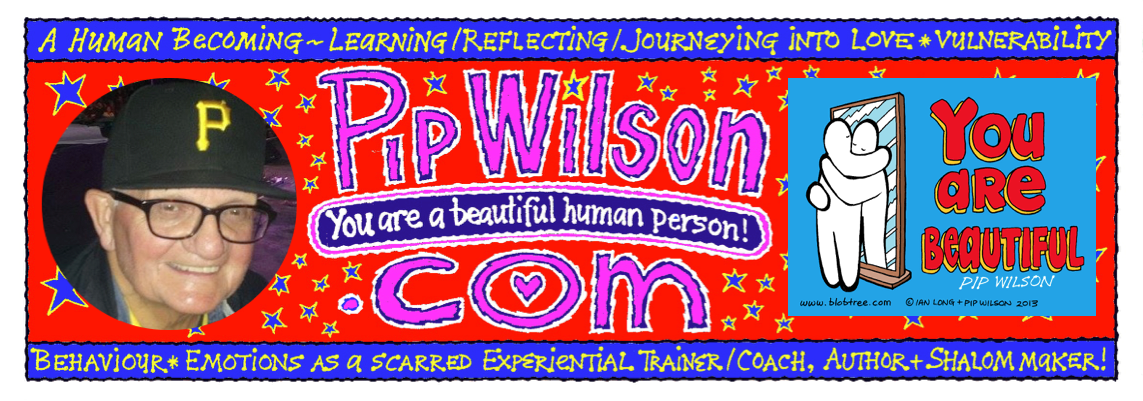
Nine ways to deal with Bullying
(Posted By- Ashi)
We often confuse bullying with regular childhood teasing or taunting. Bullying is an act of aggression characterized by intentional, repetitive and power imbalance. It is the severity and duration of such behavior which marks the identification of bullying. It is high time that adults stop assuming that bullying is as normal as a part of childhood.
Generally, in an Indian household, we believe in telling our boys to “toughen up” and not “express their emotions openly”. Instead, it is important to teach our kids to be assertive and express what they feel is right or wrong, fearlessly.
When we talk about bullying, it can be of various kinds such as physical bullying (direct violence, injury), social bullying (isolation, humiliating, spreading rumor), verbal bullying (ridiculing, abusing), cyber bullying.
Bullying involves two aspects - the offender, who bullies; and the victim, who is being bullied.
Image source: www.kidshelpphone.ca
Bully Victims
They are characterized as impulsive, academically incompetent with the environment at home.
Conversely, one of the other kind, who are socially competent and are popular in the harsh peer group.
These especially become the ones to look up tofor power base in peer-group.
Bullies have a tendency to target individuals with low self-esteem.
The more fearful the person feels, the more encouraged a bully gets.
Bullying can happen anywhere, be it school, college, workplace, neighborhood, etc.
Talking about India, effects of school bullying have been felt frequently, in the form of suicide deaths of young students.
IMRB, a top Indian marketing research company conducted a survey showing that “every third child” is bullied in Indian schools.
Typically, boys report more bullying than girls, but girls report more victimization (Cook, Williams, Guerra, Kim, & Sadek, 2010).
Image source: www.medicalnewstoday.com
Why do teens and young adults bully?
- Teens or children tend to experience a particular behavior at home and feel justified in carrying out the similar behavior at school or with their peers.
- Research suggests that children who tend to be both – bullies and victims are characterized to have authoritarian parenting styles (Baldry and Farrington, 1998). To know more about “What’s your Parenting Style”, you can look up tohttp://www.dialmyangel.com/article-view.php?pageurl=parentingstylesandtheirinfluenceonyourchild.
- Exposure of a child since the very starting matters. Exposing your child to television, social media, and networking sites, the company of friends influences their behavior greatly. To have an insight into the concerns outlining social media, you can also refer to http://www.dialmyangel.com/article-view.php?pageurl=socialmediatheevolutionalworldpartithegoodthebeautiful.
- We see India as a home to an extremely competitive society academically. A student performing poorly in school may otherwise bully a bright child’s potential, out of resentment and vice versa.
Image source: www.healthline.com
Repercussions of bullying behavior
Children, teens and young adults who have been bullied may experience:
- Depression
- Fear
- Isolation
- Anxiety
- Low self-esteem
A child, teen or young adult might also develop self-fulfilling prophecy, where they believe what they are told. Bullying in childhood may cause the victims to develop problems in their health, sleep, work and even social and emotional functioning.
In young students, issues of trust may develop, resulting in difficulty establishing relationships or friendships. Young adults might stay alone by developing trust issues. They start isolating themselves to protect themselves from getting hurt or harmed again. Such isolation may lead to loneliness and increased the risk to suicide, in severe cases.
In conventional Indian society, extended family members, grandparents, and children used to live altogether in the same household, sharing responsibilities and imbibing roles. In today’s era of nuclear families, parents have a greater responsibility in taking care of their children and providing them with support, education and basic living. They hold more accountability to protect their kids.
Image source: sites.psu.edu
According to psychologists, there are common signs shown by teens and children which are overlooked by parents sometimes:
- Kids acting sad or worried
- Children being fearful of traveling on school bus
- Children refusing to go to school
- Kids returning home with bruises or torn clothing
- Children are fearful of traveling on the school bus
- Children demanding more pocket money for school
- Kids complaining of headaches and frequent stomach aches or other health issues
Image source: www.easywebcontent.com
Managing bullying
- Be open and communicate well with your children, so they feel comfortable in sharing what happened at school, or any incidents they experienced. This will help in gaining your children’s trust in you and help them speak up when they need your support.
- Take time out for your kids. Spend quality time with them to ensure that they know you’re concerned for them and working for their happiness and welfare.
- Begin to take the behavior of bullying in a serious note. Acknowledge the dangers of bullying in schools. Don’t ignore your children’s claims of being bullied or any such information.
- If your child is a slow learner or having special needs, take precautions in keeping them safe from any harm.
- Schedule your time with a trained, professional counselor to help your kids overcome bullying effects, if they have been bullied.
- Parents of bullies must take some actions to help their child in overcoming his or her abusive and harming nature. Changes in lifestyle, moral training, and counseling can greatly contribute to reducing his or her bullying conduct.
- Peer Group Power: Identifying offenders who take part in bullying, and defenders who sympathize with the victim. Latter can be approached for peer counseling. In school, teachers must dedicate more time and effort, and spread awareness regarding any such conduct and use such techniques to avoid all the offenders becoming a group.
- Assertiveness Training: The power of communicating what you want or how you would like to be treated. Research supports the evidence, those acting with calm and ignoring the bully gradually diminishes the bullying tendency of others.
Image source: quotesgram.com
*
